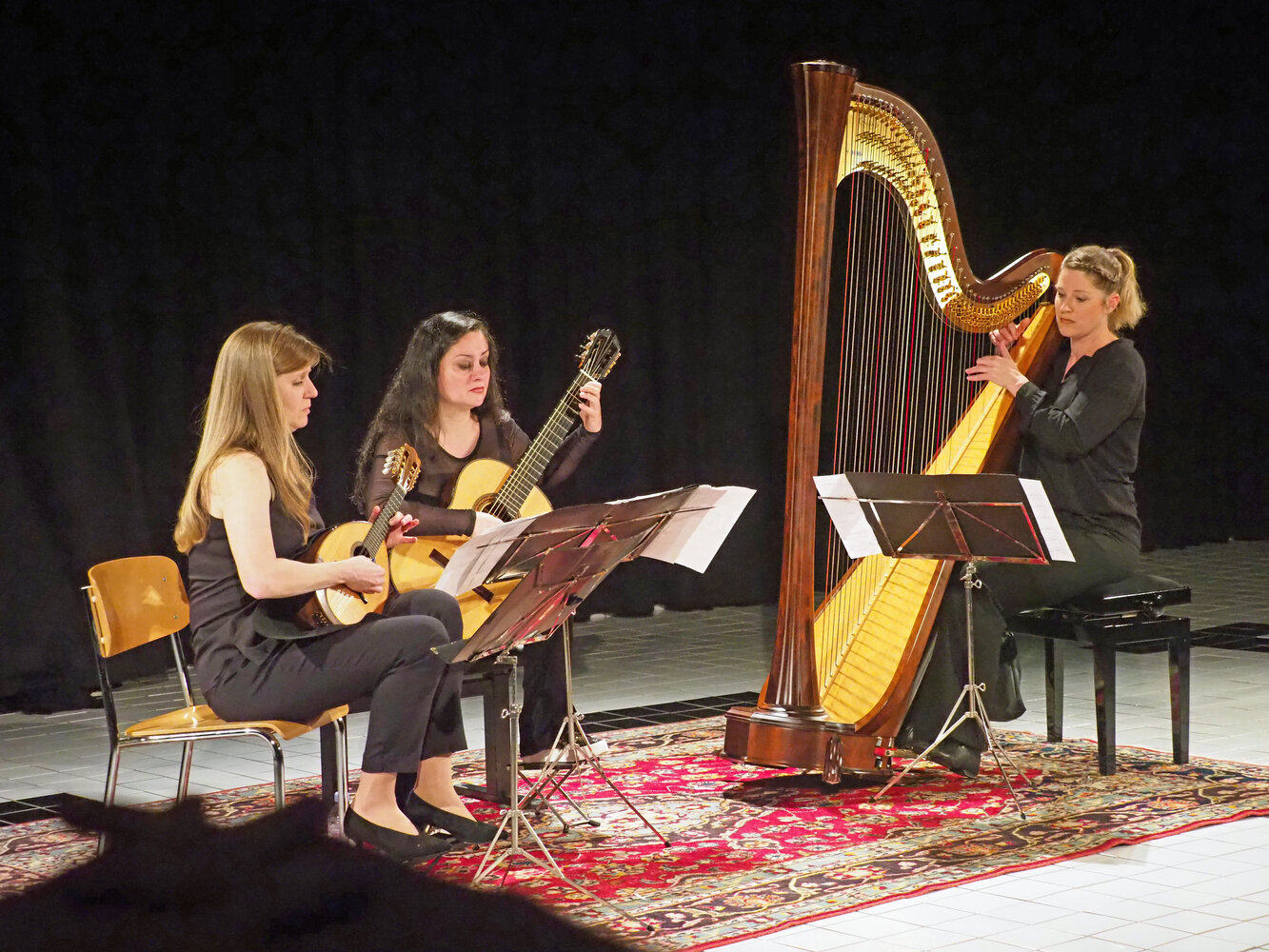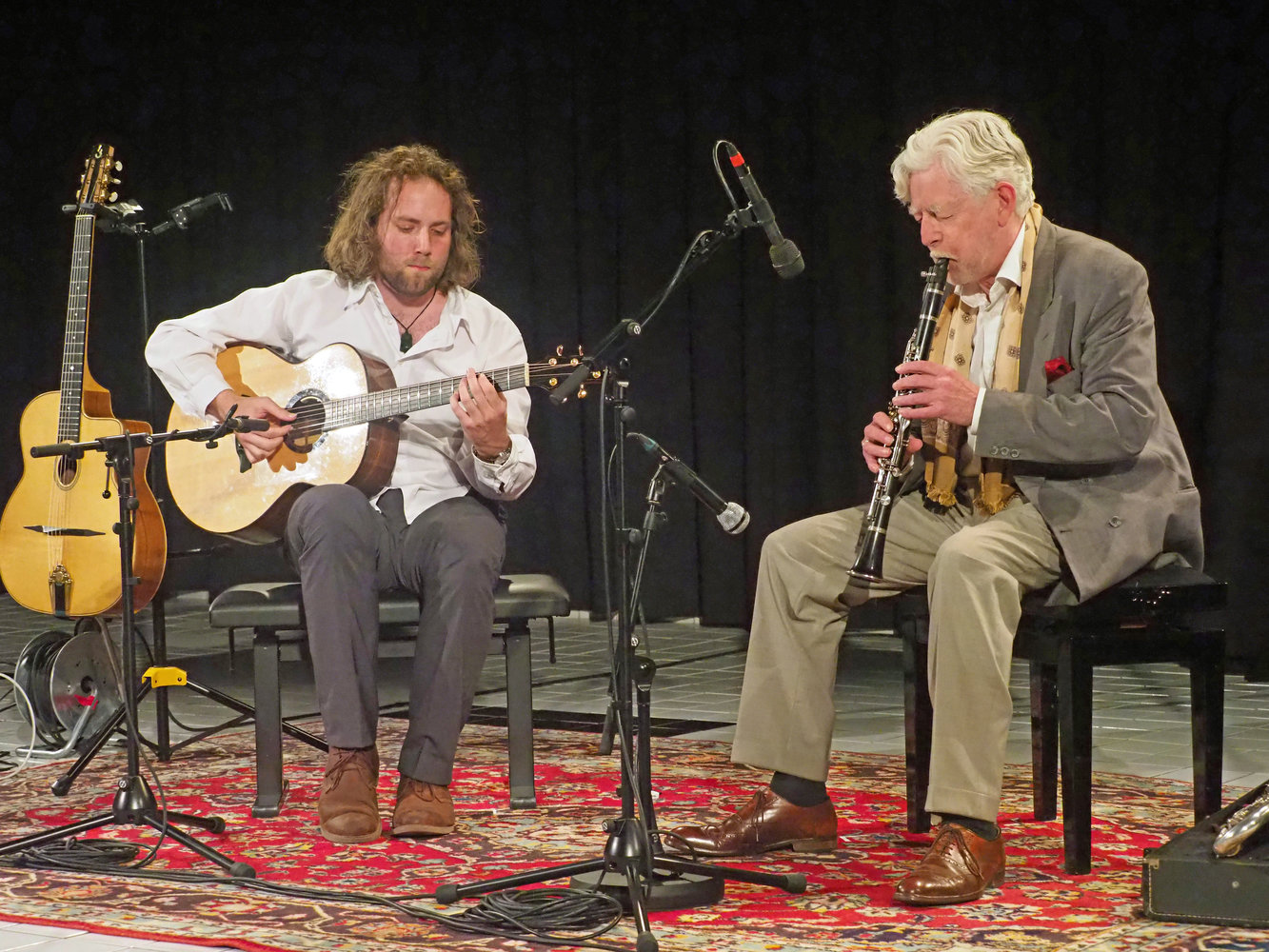Filigree at the Lucerne Guitar Concerts
The delicate sound worlds of the analog concert guitar and its chamber music playing companions were celebrated in Lucerne from May 18 to 21.

The concert guitar seems to have fallen out of time. In the 20th century, it stood for movements such as folk music, for conviviality around the campfire, intimate recitals in small groups and styles that sailed under the label "world music": Flamenco, bossa nova, jazz manouche. Storms of protest, such as those experienced by the later Nobel Prize winner Bob Dylan when he electrified his folk guitar, are unimaginable today. Current music production is becoming more and more digitalized and is increasingly taking place in artificial worlds in which music-making is becoming increasingly disembodied.
The acoustic guitar has almost mutated into a symbol of resistance. In Switzerland, initiatives such as the Förderverein klassische Gitarre Zürich, the Ticino-based Amici della chitarra and the Lucerne Guitar Focus Association high. The latter has organized four classical guitar concerts a year there since 2009 and bundled them into an annual festival during the pandemic, in which the guitar is increasingly shown in combination with chamber music.
This year's program included a trio of guitar, harp and mandolin, a clarinet-guitar duo, a pure guitar duo and a violin-lute duo - in addition to solo concerts, workshops and an open stage. The association has also come up with something special to promote young talent: The concerts in Lucerne's Neubad were always introduced by short performances by students. This is an idea worth emulating.
Plucking to the power of three
It usually takes a moment to adjust your ears to the delicate soundscapes of the concert guitar. But once you are drawn into the filigree sounds, you may be in for a surprise. In recent years, the Brazilian Hamilton de Holanda and the Israeli Avi Avital have opened their ears to a relative of the plucked instrument, the mandolin. Xavier de Maistre has put the "typical female instrument", the harp, in the spotlight.
The trio sixty1strings showed in Lucerne that "man-splucking" is unnecessary in order to give these instruments the respect they deserve. The reason for founding the trio was the study of one of the few original compositions for this instrumentation: Hans Werner Henze's Carillon, Recitatif, Masque. Henze, who was born with the Royal Winter Music who made a singular contribution to the guitar repertoire of the 20th century, is very familiar with the possibilities of the instrument and shows a happy hand here too.
Guitarist Negin Habibi, harpist Konstanze Kuss and mandolinist Ekaterina Solovey, among others, have also played the Aquarium from Saint-Saëns Carnival of the animals arranged for themselves, and allow the highly poetic little work to appear in a completely new light. It would be difficult to listen to the original version after this amazing experience without remembering these perfectly fitting filigree sounds.
A bit of folk spirit
Something of the spirit of the folk movement shone through the duo Zarek Silberschmidt & George Ricci. First there was the story of the discovery of the New Zealand guitarist by the festival organizer Elise Tricoteaux: she had heard him play in the canteen of the Basel Music Academy and was thrilled by his virtuosity and creativity. Silberschmidt has indeed mastered a variety of styles such as jazz manouche, flamenco, blues, country and folk and manages to put his stamp on them without diluting their authenticity. In addition, he uses all the elements of the instrument for the most amazing percussion effects. Ricci complements him on the bass clarinet with Johnny Cash lines. On the Bb clarinet he contributed, among other things, an extremely sensitive, atmospherically first-class version of Kosmas Feuilles mortes with.

The Lucerne Guitar Concerts are organized by Elise Tricoteaux and Raoul Morat.








